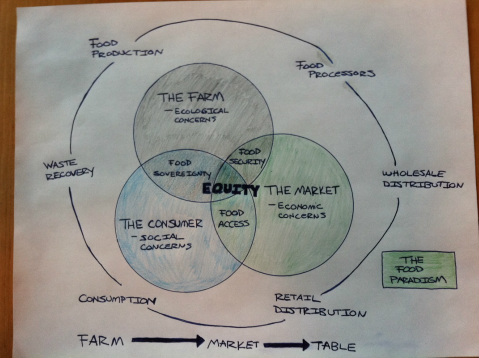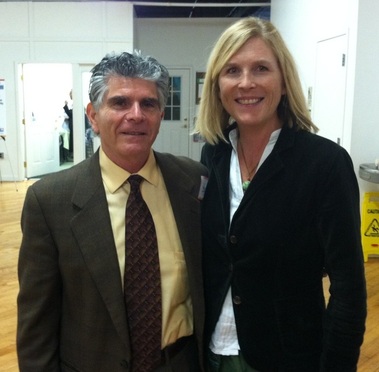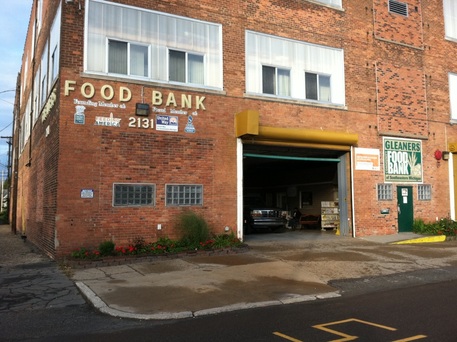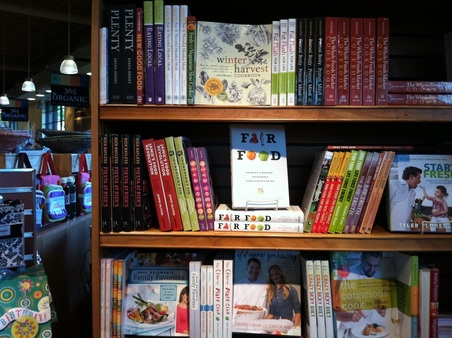
WHAT IS SUSTAINABILITY?
Regardless, it's a great word and I believe in what it means! In its solitary form, sustainability represents "meeting the needs of the present without compromising the ability of future generations to meet their own needs" (as coined by the World Commission on Environment and Development). Toss in food and my favorite definition for sustainable agriculture is...and I admit, I forget where I got this from..."land management practices which balance food production with the conservation of ecosystems through soil biology and biodiversity." Therefore, I conclude that the sustainable food systems we build today will create an equitable supply chain from grower to consumer both now and in the future. Equitable being the operative word!
Let me develop that a little further...If the land, the farmers, the workforce and the consumers are treated fairly and with respect to their needs and services there will be equity in the marketplace. When there is justice in the food system everyone wins! The soil can sustain itself and support a healthy and vibrant ecosystem. And the marketplace can take care of its workers and customers because the economy will realize we are all customers. And it is in our valued interest to meet the needs of the people first before profit. By taking care of our ecosystem services, the return on investment will be a thriving community not a dividend.

I want to build food-focused communities. Communities that are invested in their food security. It begins with how and where the food was grown. To be food secure, you first must know the land can provide indefinitely. Only sustainable agricultural practices can provide that. Once we secure the food and the land is happy, we need to make it accessible by creating an equitable marketplace for farmers to sell their food at a fair price and at a price the community can afford. Food access includes educating people about diet, scratch cooking skills as well as food buying decisions at the home, school and institutional level. An informed eater will realize the positive impacts that buying local can provide and that sustainable agriculture is as much about sustainable, economic development. Food sovereignty is when food security and food access coalesce. It results in communities that are engaged in food policy. They come together to design a system that works for them ecologically, culturally and economically.
When I hear, "How are we going to feed the world?". I say, "We first need to think in terms of building self-reliant communities that can feed themselves." If ever community did that, we will have fed the world. Start by evaluating all available land resources to see how each region can grow as much of their own food as possible. It will require saving farmland from development, creating more urban gardens, using greenhouses to extend the growing season and establishing vertical gardens in re-purposed vacant buildings. In the process, it will have created jobs for new farmers, new specialty food producers and all the people along the supply chain. Trade with other areas will of course still exist but local economies will be stronger and more resilient if able to provide more for themselves.
CLOSE TO HOME
In my community, I want to leverage all available food services in the Sierra Nevada in order to build a regional food system that can support the majority of our food needs. It will increase trade regionally between communities bolstering local economies. Money will circulate in the region encouraging more, small farms and area food producers but it w will also spark job growth and new business in other industries because that's what happens when money stays local. Economic drivers that promote a 25% shift to buying local will be implemented. By keeping money in the region, it will stoke the fire to ensure the model's longevity. I've quoted Mother Jones magazine on this one before and I'll do it again..."Fix the food...fix the country."
That's my BHAG: Big-Hairy-Audacious Goals! Gotta have'em!




 RSS Feed
RSS Feed
